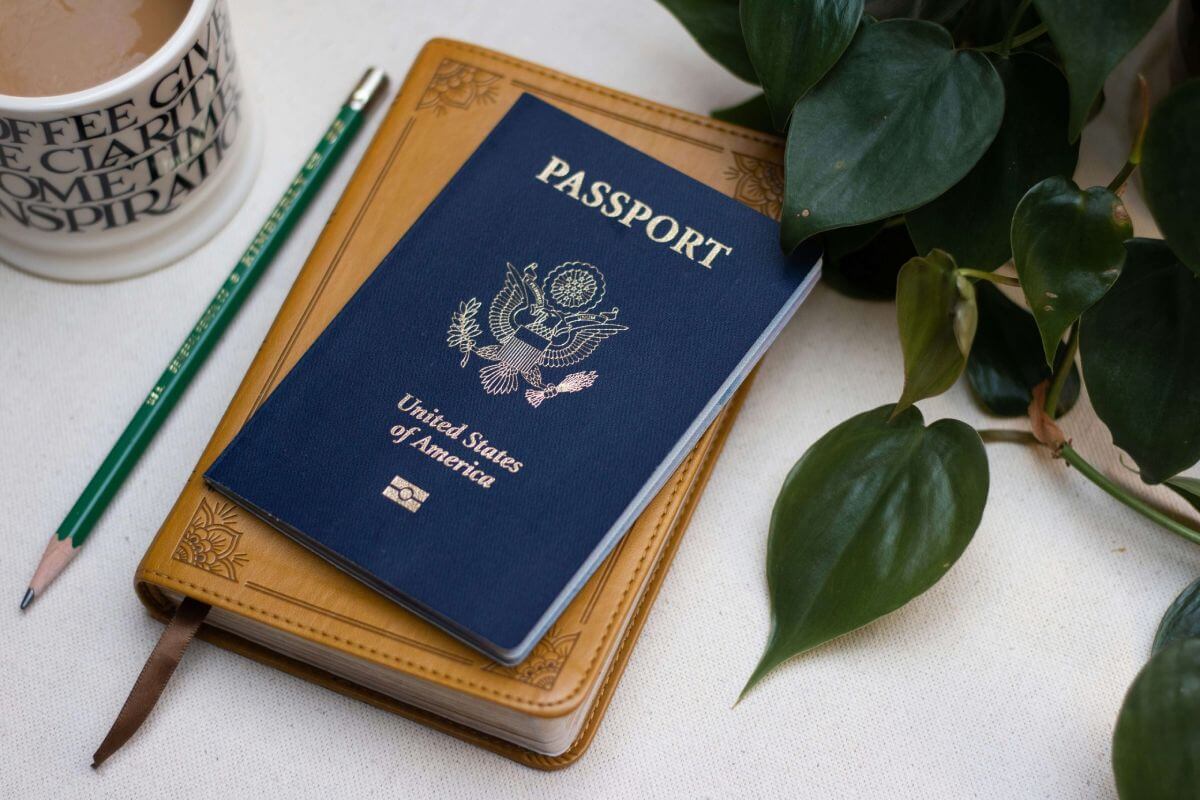Are you a US citizen who dreams of living peacefully on Madeira Island, with beautiful scenery and friendly neighbours all around you? The Portuguese D7 visa might open the door to turning this dream into reality. This article looks at what US citizens need to know about the D7 visa when they want to move to Madeira Island. We’ll also show you how our team at Madeira Corporate Services (MCS) can make everything easier for you, from helping you apply for your D7 visa to taking care of your taxes in Portugal.
What Is the Portuguese D7 Visa?
Portugal created the D7 Visa, also known as the Retirement Visa or Passive Income Visa, to draw non-EU citizens with steady passive income. It allows people to live in Portugal without needing a job as long as they can show independence. This makes the D7 Visa an excellent option for retirees, business owners with passive income, and folks who support themselves through investments, rent money, or savings.
Why Choose Madeira Island?
Madeira is a pretty and one-of-a-kind part of Portugal famous for its mild weather all year gorgeous coastline, and friendly local communities. The island gives U.S. citizens the right mix of peace cultural history, and modern comforts. What’s more, Madeira has a lower cost of living than many U.S. cities offering a good option to stretch their retirement savings further.
The island also attracts people because it has good healthcare, a safe environment, and a lively expat community. These things make Madeira a great choice for retirees or anyone wanting to move for a peaceful life in a European setting.
Eligibility Requirements for the D7 Visa
For U.S. citizens to get the Portuguese D7 Visa, they need to meet a few money-related and practical requirements. These include:
- Proof of Steady Income Without Work: You need to show you have regular money coming in, like from your pension investments, rent from properties or any other source that’s not a job. In 2024, you must earn at least €850 each month if you’re applying alone. You’ll need more if you’re bringing family.
- Money in the Bank: On top of your monthly earnings, you should have enough savings or assets you can sell to support you and your family while you’re in Portugal. You can prove this with statements from your bank or a list of your investments.
- A Place to Live in Portugal: You have to show you have somewhere to stay long-term in Portugal. This could be a contract for a rental, paperwork showing you own a property, or a letter from someone saying you can stay with them.
- Clean Criminal Record: People who apply need to show they have no criminal record from their home country and any country where they’ve lived for over a year.
- Health Insurance: You need to have valid health insurance that covers you in Portugal. This is a must for non-EU residents who want to get long-term visas.
Steps to Apply for the D7 Visa
Getting a D7 Visa has several steps. Many people find this process tricky when they try for the first time. Here’s a simple breakdown of what you need to do:
- Gathering Documentation: First, you need to collect all the required papers. These include proof of how much money you make, statements from your bank, agreements for renting, and checks on your background. It’s key to make sure all these papers are correctly translated into Portuguese and meet what the consulate asks for.
- Submitting Your Application: You have to submit the D7 Visa application to the Portuguese consulate in your home country. If you’re from the U.S., this means applying at the closest Portuguese consulate. This could be in Washington D.C., San Francisco, or New York.
- Attending Your Visa Appointment: After you turn in your papers, you need to go to an appointment at the consulate. There, they might ask you more questions or tell you to bring more paperwork.
- Getting Your Visa and Moving: After approval, you’ll get a temporary visa to travel to Portugal and start your residency process. When you arrive, you need to set up a meeting with the Portuguese immigration authorities (SEF) to get your residency permit.
- Renewal and Long-Term Stay: The D7 Visa lasts for one year at first and you can renew it for two more years after that. After five years, you might qualify for permanent residency or Portuguese citizenship.
How Madeira Corporate Services Can Help with Your D7 Visa Application
Getting a D7 Visa can be tough when you have to deal with Portuguese red tape and make sure all your papers are just right. This is where Madeira Corporate Services (MCS) steps in to help.
MCS gives top-notch help to U.S. citizens who want to move to Madeira. They’ve spent years helping people from other countries settle on the island. They offer a bunch of services to make getting your visa a whole lot easier:
- Document Preparation: MCS helps clients gather, translate, and check all necessary papers for the D7 Visa application. They make sure everything follows Portuguese rules.
- Liaison with Authorities: They speak to the Portuguese consulate and immigration officials on your behalf. This speeds up the visa process and helps you avoid common mistakes.
- Local Representation: If you need to prove where you’ll live, MCS can help you get rental agreements or even buy property on the island.
Tax Compliance for U.S. Citizens in Madeira
After you move to Madeira, paying your taxes becomes crucial to your Portuguese life. As an American, you must submit U.S. tax returns every year and follow Portuguese tax rules. This can be tricky, but Madeira Corporate Services can help you with everything.
Portuguese Tax Residency
If you stay in Portugal for over 183 days, Portugal sees you as a tax resident. This means you need to report all your income worldwide, not just what you earn in Portugal. This might lead to worries about paying taxes twice, but Portugal has agreements with the U.S. to prevent double taxation.
Filing Taxes in Both the U.S. and Portugal
Americans still need to file tax returns with the IRS. They must report their foreign bank accounts and investments through FBAR and FATCA rules. MCS can help you with Portuguese tax filings. They make sure you follow all the rules while paying as little tax as possible. They also talk to your US tax advisor when needed.
Managing Property and Investments
MCS provides services to manage property and plan finances for people buying property in Madeira. This helps you stick to all local tax laws. They assist with property taxes reporting rental income tax, and managing investments.
Conclusion About the D7 Visa
Moving to Madeira Island with a Portuguese D7 Visa allows you to enjoy a peaceful life in one of Europe’s most stunning spots. The visa application and tax paperwork might seem tough, but Madeira Corporate Services guides you through each stage. MCS helps you collect all the needed papers and understand Portuguese tax rules making your move to Madeira easy and worry-free. Madeira has something for everyone – retirees, investors, or those looking for new experiences. It offers a perfect mix of peace, culture, and chances for growth.
FAQs
- Can I work in Portugal with a D7 Visa? You can work for companies outside Portugal or as a freelancer, but the D7 Visa suits people with passive income. If you want to work in Portugal other visas might fit your needs better.
- How long does it take to get the D7 Visa? Getting the D7 Visa takes three to six months. The time depends on how fast you can collect the needed papers and book an appointment at the consulate.
- Is the D7 Visa renewable? Yes, you can renew the D7 Visa. At first, it lasts for one year. Then, you can extend it for two more years. After five years, you have the option to apply for permanent residency or citizenship.
- What taxes will I pay as a U.S. citizen living in Madeira? You must file taxes in the U.S. and Portugal. Tax agreements between these countries help you avoid paying taxes twice.
- Can Madeira Corporate Services help with property management? MCS offers many services to help expats handle their properties and investments in Madeira. These include managing properties and reporting rental income taxes.
The information in this article on “D7 Visa application process” is for general informational purposes only and is not intended to constitute legal advice. While every effort has been made to ensure the accuracy of the content, laws and legal procedures can change, and the specifics of each case can vary widely. Therefore, readers are advised to consult a qualified professional or attorney in Portugal for advice tailored to their circumstances before taking action. This article does not create an attorney-client relationship between the reader, the authors, or the publishers. The authors and publishers are not liable for any actions taken or not taken based on the content of this article.
The founding of Madeira Corporate Services dates back to 1996. MCS started as a corporate service provider in the Madeira International Business Center and rapidly became a leading management company… Read more




